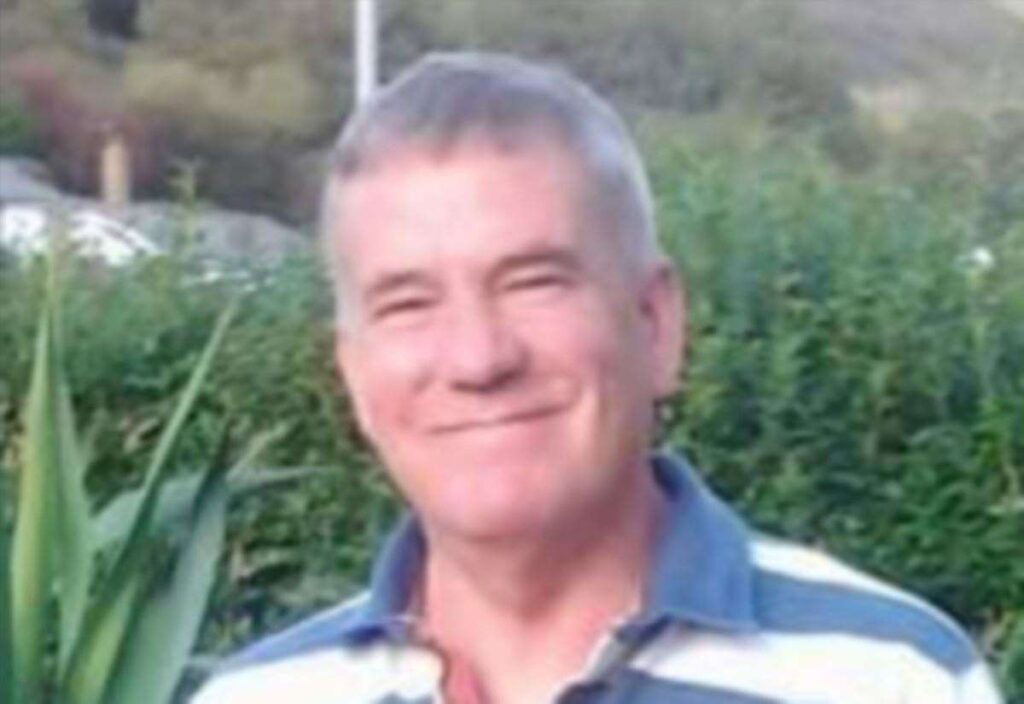An alleged murder victim suffered a 12cm stab wound to the chest, a jury has heard.
Ajay Porter, of no fixed address, is on trial accused of murdering Derek O’Hare, 66, outside his home in Anstee Road, Dover, last December.

The 36-year-old denies charges of murder and possessing an offensive weapon, claiming his actions were reasonable and necessary to defend himself.
Earlier this week, Canterbury Crown Court heard the two men were friends and often took drugs together, but that in the days leading up to the incident, Mr O’Hare had accused Porter of stealing drugs from him.
The court heard Porter intended to visit Mr O’Hare on the evening of the alleged murder to “clear the air” in relation to the disagreement.
However, opening the case on Tuesday, prosecutor Nina Ellin KC said the defendant’s actions on December 11 constituted a “vicious and merciless attack”. Mr O’Hare was found by neighbours slumped on the landing with blood around his body, having been stabbed seven times.
Giving evidence today, pathologist Dr Olaf James Biedrzycki, who performed a postmortem on Mr O’Hare, said the most significant injury was a stab wound to the mid-chest area with a depth of approximately 12cm.

“This is by far in a way the fatal injury – it’s caused catastrophic injury, which is not really survivable,” said Dr Biedrzycki.
“The knife passes into the chest cavity by cutting through the left second rib. It then passes in and out of the left lung, with the lung hole measured at 3cm, it then enters the pericardium (a fluid-filled sac that surrounds the heart), creating a 2cm hole in the aorta (the largest artery of the body).
“The knife has basically cut straight through the second rib – a cut straight through a bone means that severe force was used in this case.”
The pathologist said that the “clean” shape of the stab wounds indicated that they were the result of rapid ‘in-out’ blows.
Asked by prosecutor, Nina Ellin KC, if Mr O’Hare’s could possibly have sustained his injuries by falling onto a knife, he said it was unlikely but he could not rule it out.
“These wounds are not consistent with falling on a knife,” he added.
“Especially in the case of the fatal wound – that’s got an upwards trajectory and it’s quite high up on his body.
“If you’re falling onto a knife, that’s quite a hard trajectory to create.”
Dr Biedrzycki also drew jurors’ attention to what he described as a “defensive wound” to the second knuckle of Mr O’Hare’s right hand.
The pathologist told the court that while this wound had merely pieced skin, it was consistent with an injury one might typically sustain while seeking to avoid a knife attack.

On cross-examination by Ian Henderson KC, the doctor said that after Mr O’Hare suffered the stab wound to his chest it is possible that he could have engaged in “purposeful activity such as walking, talking or fighting” for up to tens of seconds, before losing consciousness.
The court also heard from Linda Collins – who lived one floor below Mr O’Hare- and told Canterbury Crown Court that she heard loud banging around 9pm.
“At first I thought it was just kids so I ignored it but then at about half nine the banging started to get louder – my cats started running around, going crazy because they don’t like loud noises,” said Ms Collins.
“I heard a lady scream and then I heard somebody shouting, saying: ‘I’ve been your friend for a long time, I helped you’ and then he used the c-word, he was aiming it at the other person.”
Ms Collins stepped out of her front door to see a man she estimates to be aged between 20 and 35 standing on the staircase leading to the floor above.
“He was shocked to see me when he came down the stairs, he was holding a stick, it looked like a table leg.
“I was looking straight at him, then I said: ‘What the f***ing hell are you doing here?’
“In my head I thought are you doing to hurt me or kill me, if you’re going to kill me then just do it now.
“But he was wide-eyed staring, he didn’t say one word, he just looked like he was in shock.”
Ms Collins said she then saw the man throw the wooden stick onto the stairs and run downstairs.
She went upstairs and saw another of her neighbours looking down at Mr O’Hare lying on floor by the landing.
“I knew something was very wrong,” she continued.
“I tried to talk to him, and my neighbour tried to talk to him and then I said: ‘You’d better feel for his pulse’ and he said” ‘It’s very weak’”.
“My neighbour called the police, and they got here pretty quick.”
Emergency services attended, set up a crime scene and recovered the stick. But despite a thorough search of the area, the knife used in the attack could not be found.
After police issued a warrant for his arrest, Porter turned himself in four days later and, with the benefit of legal advice, was questioned by officers.
The defendant confirmed he had visited O’Hare’s address on the night of the incident and on arrival, his friend repeatedly hit him in the head with a wooden stick.
The trial, which is set to last at least three weeks, continues.



